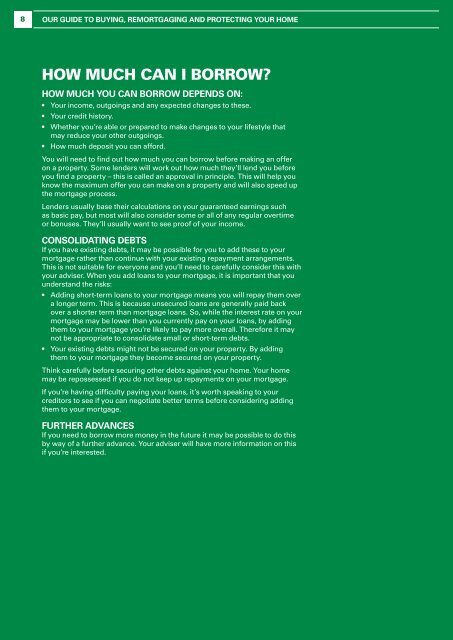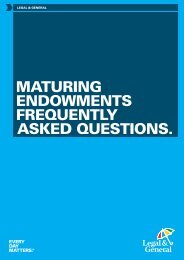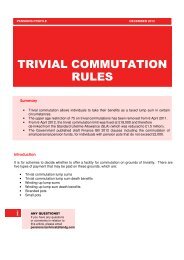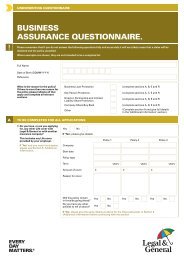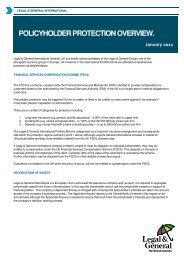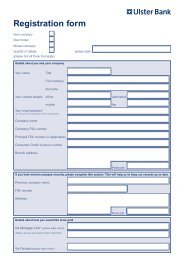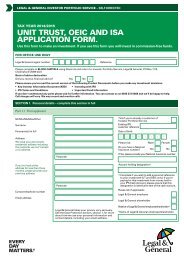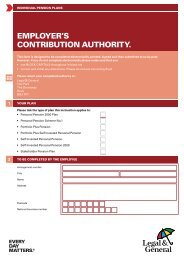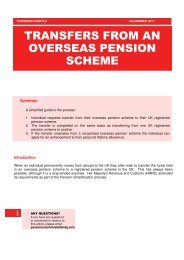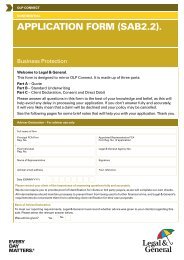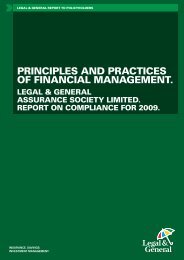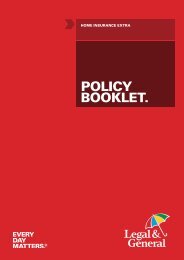A HELPING HAND WITH OWNING YOUR HOME. - Legal & General
A HELPING HAND WITH OWNING YOUR HOME. - Legal & General
A HELPING HAND WITH OWNING YOUR HOME. - Legal & General
You also want an ePaper? Increase the reach of your titles
YUMPU automatically turns print PDFs into web optimized ePapers that Google loves.
8 OUR GUIDE TO BUYING, REMORTGAGING AND PROTECTING <strong>YOUR</strong> <strong>HOME</strong><br />
HOW MUCH CAN I BORROW<br />
HOW MUCH YOU CAN BORROW DEPENDS ON:<br />
• Your income, outgoings and any expected changes to these.<br />
• Your credit history.<br />
• Whether you’re able or prepared to make changes to your lifestyle that<br />
may reduce your other outgoings.<br />
• How much deposit you can afford.<br />
You will need to find out how much you can borrow before making an offer<br />
on a property. Some lenders will work out how much they’ll lend you before<br />
you find a property – this is called an approval in principle. This will help you<br />
know the maximum offer you can make on a property and will also speed up<br />
the mortgage process.<br />
Lenders usually base their calculations on your guaranteed earnings such<br />
as basic pay, but most will also consider some or all of any regular overtime<br />
or bonuses. They’ll usually want to see proof of your income.<br />
CONSOLIDATING DEBTS<br />
If you have existing debts, it may be possible for you to add these to your<br />
mortgage rather than continue with your existing repayment arrangements.<br />
This is not suitable for everyone and you’ll need to carefully consider this with<br />
your adviser. When you add loans to your mortgage, it is important that you<br />
understand the risks:<br />
• Adding short-term loans to your mortgage means you will repay them over<br />
a longer term. This is because unsecured loans are generally paid back<br />
over a shorter term than mortgage loans. So, while the interest rate on your<br />
mortgage may be lower than you currently pay on your loans, by adding<br />
them to your mortgage you’re likely to pay more overall. Therefore it may<br />
not be appropriate to consolidate small or short-term debts.<br />
• Your existing debts might not be secured on your property. By adding<br />
them to your mortgage they become secured on your property.<br />
Think carefully before securing other debts against your home. Your home<br />
may be repossessed if you do not keep up repayments on your mortgage.<br />
If you’re having difficulty paying your loans, it’s worth speaking to your<br />
creditors to see if you can negotiate better terms before considering adding<br />
them to your mortgage.<br />
FURTHER ADVANCES<br />
If you need to borrow more money in the future it may be possible to do this<br />
by way of a further advance. Your adviser will have more information on this<br />
if you’re interested.


